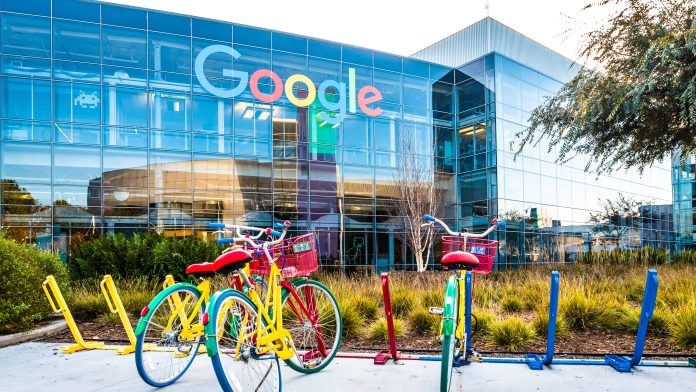
In a major escalation of its antitrust battle with Google, the US Division of Justice (DOJ) has proposed splitting off Google’s Chrome browser and Android working system as a part of sweeping treatments geared toward curbing the tech large’s “unlawful monopoly” in on-line search and promoting.
“The DOJ is contemplating behavioral and structural treatments that will forestall Google from utilizing merchandise akin to Chrome, Play, and Android to benefit Google search and Google search-related merchandise and options — together with rising search entry factors and options, akin to synthetic intelligence — over rivals or new entrants,” the DOJ mentioned in a courtroom submitting.
The division mentioned that Google’s longstanding management of the Chrome browser, with its preinstalled Google search default, “considerably narrows the out there channels of distribution and thus disincentivizes the emergence of recent competitors.”
It additionally mentioned that it’s “contemplating treatments that will restrict or finish Google’s use of contracts, monopoly income, and different instruments to regulate or affect longstanding and rising distribution channels and search-related merchandise.”
“For instance,” the DOJ mentioned, it’s “evaluating treatments that will, amongst different issues, restrict or prohibit default agreements, preinstallation agreements, and different revenue-sharing preparations associated to go looking and search-related merchandise, doubtlessly with or with out the usage of a alternative display screen.”
The proposal comes after an August 2024 ruling by Choose Amit Mehta that discovered Google responsible of sustaining monopolies within the US basic search providers and basic search promoting markets, violating the Sherman Act.
“Splitting Chrome and Android from Google may cut back Google’s dominance in search, an area the place Google faces challenges from conversational search capabilities in Perplexity, Bing, and ChatGPT, in addition to from TikTok, which just lately enhanced its search to permit manufacturers to focus on particular key phrases in search outcomes,” mentioned Xiaofeng Wang, principal analyst at Forrester.
Its presence and market share on cell would lower if its search engine weren’t pre-installed or set because the default on new cell gadgets. This might doubtlessly result in a reallocation of search advert budgets from Google to different platforms, Wang identified.
“Android is the inspiration of Google’s scale for its promoting and providers with greater than 3 billion customers on the planet producing trillions of search queries in a 12 months,” mentioned Neil Shah VP for analysis and companion at Counterpoint Analysis. “That is what drives Google’s core enterprise mannequin of promoting via search and show creating vital entry and stickiness for entrepreneurs to pay prime {dollars} for his or her campaigns.”
Shah identified that “decoupling search, android and properties akin to Chrome and foundational tech akin to AI and cloud from the tightly coupled & well-integrated providing would take away the stickiness and effectiveness of Google’s mannequin and earnings considerably.”
This transfer, if applied, would mark some of the aggressive actions towards a tech firm in many years and will basically reshape the digital panorama. The DOJ’s proposal highlights the extent to which Google’s management over Android and Chrome has bolstered its search dominance, enabling it to suppress competitors and entrench its monopoly.
Reining in Google’s energy
Google’s Chrome browser, probably the most broadly used net browser globally, and Android, which powers over 70% of the world’s smartphones, have been essential to Google’s dominance in search. By controlling these platforms, Google has ensured that its search engine is the default possibility for hundreds of thousands of customers, successfully locking out competitors.
The DOJ’s proposed treatment would break up these merchandise from Google’s core search and promoting companies, considerably weakening the corporate’s means to funnel customers into its search ecosystem.
“The DoJ’s proposal to doubtlessly separate Chrome and Android from Google marks a major turning level within the digital panorama,” mentioned Prabhu Ram, VP for Trade Analysis Group at CyberMedia Analysis. “Whereas the timeline for such a separation stays unsure, the transfer may reshape competitors in search, cell, and promoting markets.”
The DOJ’s proposed treatments transcend splitting Chrome and Android. The division can be concentrating on Google’s revenue-sharing agreements with machine makers and telecom firms, which have saved Google because the default search engine on the overwhelming majority of gadgets globally. This observe has successfully blocked rivals from gaining market share.
As well as, the DOJ goals to deal with Google’s management over person knowledge. The tech large’s means to gather and leverage huge quantities of knowledge has been a key aggressive benefit, enabling it to optimize search outcomes and promoting higher than any of its rivals. The DOJ is looking for to implement data-sharing necessities that will give competing search engines like google entry to related knowledge, leveling the taking part in discipline, the DOJ assertion mentioned.
The proposal to interrupt up Google’s operations is probably the most aggressive treatment prompt by the DOJ because it started its antitrust investigation into the corporate. It displays a rising pattern in regulatory efforts worldwide, with lawmakers more and more trying to rein within the energy of Huge Tech.
Splitting Chrome and Android from Google would have far-reaching implications, not only for Google however for your entire know-how business. The transfer would seemingly spur innovation by permitting smaller search engine and promoting firms to compete on a extra degree taking part in discipline.
“I believe it’s occurring at a time when your entire know-how panorama is altering in such a means that this decoupling turns into irrelevant,” mentioned Faisal Kawoosa, founder and chief analyst at Techarc. “With AI more and more turning into the default interface between people and gadgets/devices, the strains between OS and browser is blurring organically.”
“So, I don’t suppose this transfer goes to make an excellent influence within the current state of affairs,” Kawoosa acknowledged.
Google hits again on the proposal
In response to the DOJ’s proposed treatments, Google has expressed sturdy considerations over the implications of splitting its Chrome browser and Android working system from its core enterprise.
“We’ve invested billions of {dollars} in Chrome and Android. Breaking them would change their enterprise fashions, increase the price of gadgets, and undermine competitors with Apple,” Google mentioned in a weblog publish. “Chrome is a safe, quick, and free browser and its open-source code supplies the spine for quite a few competing browsers. Android is a safe, revolutionary, and free open-source working system that has enabled huge alternative within the smartphone market, serving to to maintain the price of telephones low for billions of individuals.”
Google argued that options like Chrome’s Secure Looking and Android’s safety protections profit from integration with its broader ecosystem and separating them may jeopardize person safety.
Google additionally emphasised that the proposed treatments may end in vital unintended penalties for shoppers and the general competitiveness of American know-how. “Forcing Google to share your search queries, clicks, and outcomes with rivals dangers your privateness and safety,” the assertion cautioned, highlighting that delicate knowledge may fall into the fingers of firms missing sturdy safety practices.
“As Google rightly contested it makes cash by giving freely its choices successfully free however makes cash on the entry and skill for publishers and entrepreneurs to focus on that particular person leveraging customers’ knowledge with their campaigns,” Shah mentioned. “If it’s damaged up and never built-in, Google must change enterprise fashions which is able to cut back its scale, the chance to successfully goal its customers, and doubtlessly must develop methods to license all stakeholders a payment for entry and the tech utilization, which is able to improve the costs of gadgets, software program and providers as it is going to be not viable or well-oiled to be given free.”
Google alleged the DOJ’s define of potential adjustments as a sweeping agenda prolonged far past the authorized points at hand. “That is the beginning of a protracted course of, and we’ll reply intimately to the DOJ’s final proposals as we make our case in courtroom subsequent 12 months,” the assertion learn.
The tech large additionally expressed considerations that hampering its AI capabilities may stifle innovation in a vital sector for America’s technological management. “There are monumental dangers to the federal government placing its thumb on the size of this important business — skewing funding, distorting incentives, and hobbling rising enterprise fashions,” the corporate acknowledged.
On the commercial enterprise mannequin, Google acknowledged that government-mandated adjustments may make adverts much less precious for publishers and retailers, finally harming shoppers.
“We consider that at this time’s blueprint goes properly past the authorized scope of the Court docket’s choice about Search distribution contracts,” the weblog publish added, asserting its dedication to defending its practices in courtroom.
A brand new period of antitrust?
The DOJ has laid out a timeline for its proposed treatments, with an additional refined model of the Proposed Last Judgment anticipated by November 2024, and a revised proposal due in March 2025. Google is anticipated to problem the treatments in courtroom, setting the stage for a authorized battle that would form the way forward for antitrust enforcement within the digital age.
Analysts and business watchers consider this case might set a precedent for antitrust litigation towards tech giants throughout markets.
“This isn’t nearly Google; it’s about how we regulate the tech business shifting ahead,” mentioned an antitrust professional in a rival firm who didn’t need to be recognized. “If the DOJ succeeds, it is going to ship a robust message to different tech giants that their dominance received’t go unchecked.”
This transfer may set a precedent for extra aggressive antitrust actions towards different tech giants, Wang mentioned. “The US has additionally sued Meta Platforms, Amazon, and Apple, claiming they illegally preserve monopolies. Due to this fact, if the Google case goes via, it could have an effect on extra tech giants.”
“In fact, there may be this problem with massive tech the place most of them are seen caught in a single or the opposite anti-trust state of affairs,” Kawoosa added. “So, we’d see extra litigations.”

